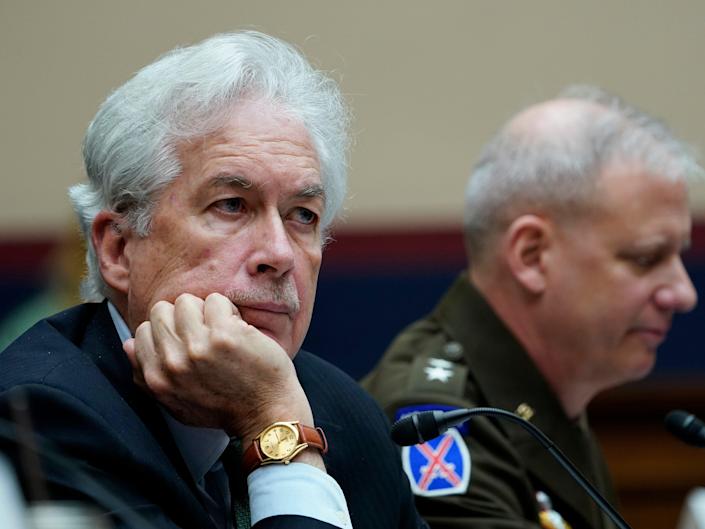
-
Vladimir Putin made a series of faulty assumptions when planning his invasion of Ukraine, the CIA director said.
-
CIA Director Bill Burns said Putin believed his military was better prepared and Ukraine would be easier to conquer.
-
Russia planned to swiftly seize the Ukrainian capital of Kyiv, but the aggressor has not been successful.
Russian President Vladimir Putin made a series of faulty assumptions in executing his invasion of Ukraine, the director of the Central Intelligence Agency said.
Putin believed “Russia faced a favorable landscape for the use of force against Ukraine,” CIA Director William Burns told the House Select Intelligence Committee on Tuesday.
“He’s been proven wrong on every count,” Burns said. “Those assumptions have proven to be profoundly flawed over the last 12 days of conflict.”
Russian forces attacked in the early morning hours of February 24, targeting key cities throughout the country with military strikes in an attempt to capture the Ukrainian capital of Kyiv.
According to the CIA director, Putin believed that Ukraine “was weak and easily intimidated,” which was his first mistake. Burns said Ukrainian President Volodymyr Zelensky has “demonstrated courageous and remarkable leadership, and Ukrainians have resisted fiercely.”
Second, Putin thought French and German neighbors would be risk-averse and preoccupied with their own politics. To the contrary, Burns said, “Europeans have demonstrated remarkable resolve.”
Putin also believed he had “sanctions-proofed his economy” with foreign currency reserves, but Burns said Western sanctions have been devastating to Russia, “depriving Putin of the ability he assumed he would have to defend the ruble.”
The US and other Western countries have imposed a series of economic sanctions on Russia and blocked the country from international banking systems. Putin has blasted the sanctions, saying they are “akin to a declaration of war.”
Fourth, Burns said Putin “was confident that he modernized his military and they were capable of a quick, decisive victory at minimal cost.” In reality, morale among Russian troops is low, and some have said they were misled about the purpose of the invasion.
“Instead of seizing Kyiv within the first two days… after nearly two weeks, they still have not been able to fully encircle the city,” Burns said. “Putin has commented privately and publically over the years that he doe snt believe Ukraine is a real country. He’s dead wrong about that. Real countries fight back, and that’s what the Ukrainians have done quite heroically over the last 12 days.”
Despite Russia’s setbacks and an excess of casualties, Burns said he believes Putin’s personal convictions to dominate Ukraine will cause him to “double down” on the invasion.
“I think Putin is angry and frustrated right now. He’s likely to double down and try to grind down the Ukrainian military with no regard for civilian casualties,” Burns said. “He has no sustainable political end game in the face of what is going to continue to be fierce resistance from Ukrainians.”
Putin initially said that his invasion of Ukraine would not target any civilians, but the offensive has since bombed multiple towns and cities, hitting hospitals, apartment buildings, and an orphanage.
Ukrainian officials and human rights groups have accused Russia of war crimes, as have top US officials. Secretary of State Antony Blinken said the US has seen “very credible reports of deliberate attacks on civilians which would constitute a war crime.”
Looking forward, Burns cast doubt that Putin could “sustain a puppet regime or pro-Russian leadership” in Ukraine in the face of strong resistance from Ukrainian citizens.
“I fail to see how he can produce that kind of an end game, and where that leads, I think, is for an ugly next few weeks,” Burns said. “The Ukrainians are going to continue to resist fiercely and effectively.”
Read the original article on Business Insider




